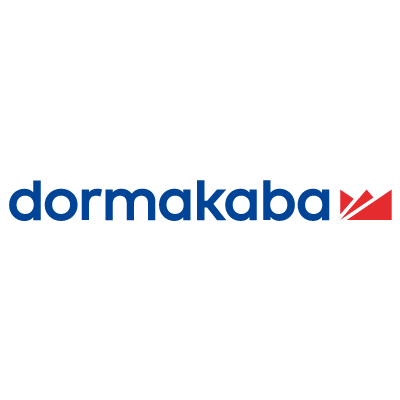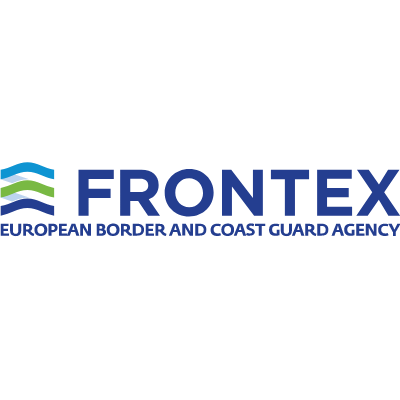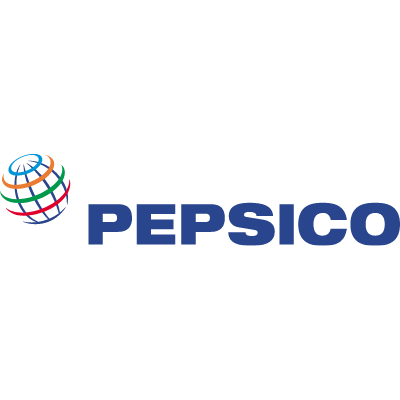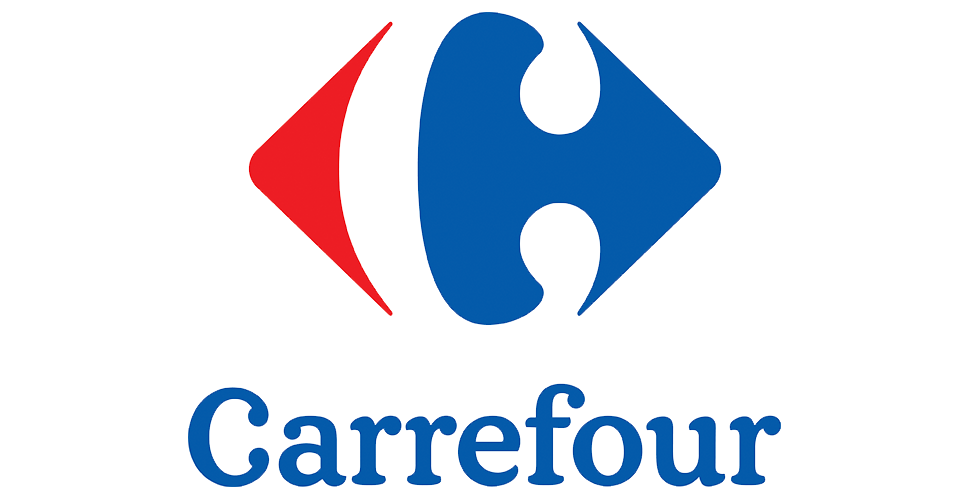According to Statista, in 2023, there were 15.9 billion Internet of Things (IoT) devices globally. This is expected to increase to 18 billion in 2024 and to surge to 39.6 billion by 2033. The consumer sector will continue to dominate IoT device usage, staying at approximately 60% of the global total through the next decade. On the other hand, major industry sectors that currently have more than 100 million connected IoT devices include electricity, gas, steam and AC, water supply and waste management, retail and wholesale, transportation and storage, and government. The total number of IoT devices in use across these industry sectors is projected to grow to over eight billion by 2033.
With the rapid growth and extensive deployment of IoT devices across various sectors, Azure IoT Hub stands out as a critical tool that offers robust, scalable solutions for device management and data communication. By leveraging Azure IoT Hub, major industry verticals can enhance operational efficiency, improve real-time decision-making, and ensure secure data exchanges across millions of devices.
In this article, I will explain what Azure IoT Hub is, how it works, and where it can be applied, focusing on different industry verticals and industrial IoT devices.
What is Azure IoT Hub?
Azure IoT Hub is a cloud-based service that serves as a central messaging hub for IoT applications, facilitating reliable and secure interactions between the cloud and a variety of IoT devices. This versatile platform supports numerous device interactions, such as device-to-cloud and cloud-to-device communications, device file uploads, and advanced request-reply operations for thorough device management. Engineered for scalability, Azure IoT Hub is capable of managing millions of devices and events at the same time, making it an ideal choice for large-scale IoT deployments.
Let us explore the features it offers in more detail.
Integration and interoperability
Azure IoT Hub integrates seamlessly with other Azure services and cloud resources, which enhances its ability to support complex solutions. It works in conjunction with Azure Event Grid, Azure Logic Apps, Azure Machine Learning, and Azure Stream Analytics. This seamless integration supports the development of end-to-end solutions that enhance operational efficiency and data-driven decision-making.
Device management and connectivity
The service simplifies the management of device identities, connected devices, and authentication through its identity registry, which ensures that only registered and authenticated devices can connect. It supports various authentication methods including SAS tokens and X.509 certificates, catering to different security requirements. These features are critical for maintaining secure and reliable communications across IoT deployments, especially in environments that require stringent security measures.
Telemetry and command operations
Azure IoT Hub excels at data handling, capturing telemetry data such as temperature or movement from connected devices, which can be utilized for analytics and monitoring purposes. It also facilitates bidirectional communication, including cloud-to-device messaging, allowing for the execution by devices of commands from the cloud, which is essential for real-time management and troubleshooting. Additionally, it supports direct methods for cloud-initiated request-response communications, such as rebooting a device or resetting its sensors, providing immediate responses from the device.
Security and compliance
Security is paramount in Azure IoT Hub, which uses Transport Layer Security (TLS) to protect communications between IoT devices and the cloud. The platform complies with stringent industry standards and regional data protection laws, ensuring that data is securely managed and does not leave the designated geographical region.
Read more on AI:
Small language models (SLMs)—a gentle introduction
Generative AI implementation in business: how to do it responsibly and ethically
AI in manufacturing: Four nonobvious implementations
Ten business use cases for generative AI virtual assistants
Generative AI in knowledge management—a practical solution for enterprises
Is ChatGPT dreaming of conquering the world? Generative AI in business
The power of generative AI at your fingertips—Azure OpenAI Service
Unleash your superpowers with new Power Platform AI capabilities
Curbing ChatGPT hallucinations with retrieval augmented generation (RAG)
Device provisioning service (DPS)
Azure IoT Hub’s Device Provisioning Service (DPS) automates the enrollment process for IoT devices, making it easier to integrate large numbers of devices securely and efficiently. DPS supports various provisioning scenarios, including individual and bulk device registrations. This service is particularly valuable for scenarios that require devices to be dynamically added to IoT solutions with minimal human intervention, ensuring that they are authenticated and configured correctly from the start.
Message routing
Azure IoT Hub’s message routing feature enables automated data flow management, allowing messages from devices to be consistently and reliably routed to multiple endpoints. This can include other Azure services like Stream Analytics, Service Bus, or Azure Storage for further processing. Customizable routing queries based on device telemetry data help in enhancing application responsiveness and operational efficiency.
Integration with Azure IoT Edge
Azure IoT Edge extends cloud intelligence directly to IoT devices. By running advanced analytics models directly on the devices, it reduces response times and conserves bandwidth. Azure IoT Hub works in conjunction with Azure IoT Edge to deploy and manage AI, analytics, and custom business logic on devices, facilitating real-time decisions even when network connectivity is intermittent or unavailable.
Support for Azure Digital Twins
Azure IoT Hub integrates with Azure Digital Twins to create comprehensive digital models of physical environments. This integration allows organizations to simulate real-world situations, understand relationships between different environments and devices, and implement solutions that predict and respond to changes in the simulated environment in real time. It’s a powerful tool for complex scenarios where interdependencies are critical, such as in smart buildings and urban planning.
Monitoring and diagnostics
Azure IoT Hub provides robust tools for monitoring and diagnostics, enabling businesses to keep a close eye on the health and activities of their IoT devices. These tools help detect, troubleshoot, and resolve issues remotely, significantly reducing maintenance costs and downtime. Enhanced diagnostics capabilities also allow for the creation of detailed logs and feedback on device conditions, ensuring that systems operate smoothly and efficiently.
Azure IoT in practice across different industries
Azure IoT Hub plays a pivotal role in enhancing industrial operations by enabling businesses to connect, monitor, and control their IoT assets, thereby centralizing IoT management and analytics across various sectors. Here is a detailed description of each of the highlighted use cases, showcasing how Azure IoT Hub can be effectively utilized:
Azure IoT Hub in telecommunications
Telefónica, a Spanish multinational telecommunications company, has significantly advanced its telecommunications services by developing the Home Advanced Connectivity (HAC) platform using Microsoft Azure IoT Hub. This new platform facilitates real-time, bidirectional data flows between customers’ in-home devices and the Telefónica cloud, allowing these devices to exchange data efficiently and enhancing service delivery and operational efficiency.
Using Azure IoT Hub and Azure IoT Hub Device Provisioning Service (DPS), HAC achieves scalable, secure management of over 4.5 million devices, processing 6.5 billion messages daily. This system is designed to expand to up to 20 million devices, highlighting its capability to manage large-scale deployments effectively. The integration of Azure services such as Azure Databricks, Azure Event Hubs, Azure Data Lake Storage, and Azure Kubernetes Service (AKS) empowers Telefónica to handle immense data volumes and complex device management tasks seamlessly.
Business-wise, HAC enables Telefónica to improve device uptime and quality assurance through enhanced monitoring and anomaly detection capabilities. The platform’s efficient bidirectional communication supports rapid development and integration of new services, enhancing customer experiences by allowing immediate diagnostics and problem resolution directly from the customers’ routers. This streamlined approach not only reduces operational costs but also accelerates the deployment of new value-added services. As Telefónica approaches its 100th anniversary in 2024, these advancements are especially significant, underscoring the company’s commitment to innovation and its leadership in the telecommunications industry as it celebrates a century of service.
Azure IoT Hub in manufacturing
FRÄNKISCHE Industrial Pipes, a supplier to industries including the construction and automotive sectors, adopted Azure IOT Hub to enhance its production processes and product quality. By investing in connected production, the company has established a platform that collects real-time data throughout its manufacturing process, enabling quicker detection of errors and boosting quality assurance.
The Azure IoT Hub platform unites all process data on a single cloud-based platform, from raw material procurement to the manufacture of the finished product. This setup facilitates transparency and real-time traceability, with each raw material and component tracked from the moment it enters production. Quality checks are thoroughly documented leveraging Azure’s capabilities, including Azure Storage, Azure Data Factory, and Azure Functions, which are integrated with the company’s manufacturing execution system (MES).
This digital transformation allows for standardized, automated production, which is becoming a standard demand in supplier quotations, particularly in the automotive industry where FRÄNKISCHE operates. The IoT platform aids in error detection and predictive maintenance, potentially warning of equipment failures before they occur. Additionally, the platform-as-a-service approach adopted by FRÄNKISCHE minimizes the need for physical hardware expansions, reduces IT security risks, and provides scalable solutions that adapt to production demands. This transformation not only improves product quality but also enhances the company’s operational efficiency and decision-making processes across departments.
Azure IoT Hub in the energy industry
Watts, a Danish energy technology company, was inspired by EU climate change legislation to develop Watts Energy Assistant, a pioneering application aimed at enhancing home energy efficiency. Leveraging Microsoft Azure, including Azure IoT Hub, Data Lake Storage, and Azure Databricks, Watts has successfully launched several energy-monitoring products. This “Microsoft for everything” strategy has enabled rapid scaling, cost reduction, and stringent GDPR compliance, facilitating the company’s growth and the expansion of its services.
Watts Energy Assistant is an application helps users track and manage energy usage, providing insights into cost-effective energy usage times and the proportion of energy derived from renewable sources. A follow-up product, Watts Live, connects to domestic energy meters, transmitting real-time data to users, significantly reducing the time to insight from two days to mere seconds. This immediate data access has helped users reduce their energy base load by up to 300%.
Further expanding its portfolio, Watts introduced the Watts Home Grid, utilizing Azure IoT Edge to enhance home energy management with capabilities like EV charging and climate control, aligning with net-zero emission goals. Throughout its development, Watts has relied on partnerships with tech and hardware experts to accelerate product development and integration, ensuring a swift market delivery.
Supported by a robust Azure-based microservice architecture, Watts continues to innovate, with plans for further products and services. The integration with Azure not only supports operational efficiencies but also ensures high levels of security and compliance, critical for maintaining customer trust and meeting regulatory requirements.
Azure IoT Hub in the automotive industry
ZF Group,a global technology company supplying advanced mobility products and systems for passenger cars, commercial vehicles, and industrial technology, has optimized its global manufacturing operations with a Digital Manufacturing Platform (DMP) built on Microsoft Azure. This integration allows for a seamless data-driven view across ZF’s 188 production sites, enhancing transparency and operational efficiency. By consolidating disparate IT solutions into one unified platform, ZF has streamlined workflows and reduced the time employees spend on manual data entry and machine maintenance.
The Azure-powered DMP utilizes IoT connectivity components to collect and analyze data from production machinery, storing it in Azure Data Lake and processing it through Azure Data Explorer. The results are displayed on intuitive Power BI dashboards, enabling real-time monitoring and management of manufacturing processes. This system supports ZF’s transition to more automated, efficient operations, particularly the showcase system at its Diepholz pilot plant where tools like Worker Cockpit and OEE Analyzer facilitate immediate production adjustments.
This digital transformation has significantly reduced downtime and optimized resource usage across ZF’s operations. By enabling real-time issue tracking and performance analytics, the DMP not only enhances machine efficiency but also sets a foundation for a globally connected digital manufacturing network, paving the way for continuous improvement and innovation in manufacturing processes.
Azure IoT Hub in the construction industry
Thomas Concrete Group, a company that specializes in developing, producing, and distributing high-quality ready-mixed and precast concrete for commercial and private customers, has innovated within the construction industry by developing sustainable IoT concrete solutions using Microsoft technologies. The company’s focus is on reducing the industry’s carbon footprint through data-driven insights and sustainable practices. By embedding sensors in concrete and utilizing in-house developed algorithms, the manufacturer is able to monitor the material’s properties and enhance the usage of sustainable binders. This technological advancement is supported by Microsoft Azure, which hosts and processes the data, allowing Thomas Concrete Group to improve resource efficiency, accelerate project timelines, and reduce waste.
In an effort to make sustainable practices accessible and standard in a traditionally slow-to-adapt industry, Thomas Concrete Group has introduced practical IoT solutions. These include sensors that provide real-time data on concrete curing and strength integrated into its Azure-based app, My Concrete, which also offers features like order tracking and concrete maturity reporting. This system enables construction companies to gain confidence in using sustainable materials without compromising safety or quality, streamlining the construction process by predicting concrete behavior and optimizing resource planning.
Looking ahead, Thomas Concrete Group aims to expand its digital solutions to include a collaboration platform that connects vendors and business partners, facilitating a broader adoption of sustainable practices. The firm sees this as just the beginning of using digital tools to drive significant environmental improvements in the construction sector, with the backing of robust Microsoft Azure IoT technologies to support its vision.
Azure IoT Hub for predictive maintenance in the renewable energy sector
SGS, a leading global testing, inspection, and certification (TIC) company, has made significant strides in the green energy market in China by developing an intelligent device for wind turbines. This device, leveraging Microsoft Azure IoT Edge and IoT Hub, provides continuous, real-time oil condition data, enhancing predictive maintenance capabilities for wind farm operators. This not only minimizes the risk of downtime but also streamlines energy production, which is critical for SGS’s strategy of offering this technology as a scalable, subscription-based service across multiple industries.
SGS’s innovation lies in its integration of Azure cloud services, enabling the deployment of its Oil Condition Monitoring (OCM-Online®) solution. This system offers detailed diagnostics and predictive analysis by collecting oil data from sensors installed on wind turbines, allowing for more efficient operation and maintenance scheduling. Data management is supported by Azure’s robust cloud infrastructure, ensuring reliable data flow and storage, and enabling SGS to provide actionable insights to clients through a user-friendly dashboard.
By adopting a cloud-based IoT solution, SGS is not only advancing its digital transformation but also enhancing its competitive edge in the renewable energy sector. The OCM-Online® service illustrates how digital tools can drive sustainability and operational efficiency, reflecting SGS’s commitment to supporting the renewable energy industry’s growth and helping clients manage their high-value assets more effectively.
Azure IoT Hub in food production
Conagra Brands, a leading North American food production company, has significantly enhanced its supply chain and shop floor operations through a digital transformation utilizing Microsoft Azure and other Microsoft technologies. Faced with the industry-wide challenges of supply chain disruptions and labor shortages, Conagra leveraged these technologies to optimize its processes, improving forecasting accuracy, enhancing monitoring and analytics, and enabling better resource management. This transformation resulted in a 30% increase in operational output and a 20% increase in production capacity at one of its facilities, alongside reductions in manual labor and improvements in order management and employee experiences.
The core of Conagra’s digital strategy involved using Azure to digitize its supply chain, connecting IoT devices across shop floors to increase organizational visibility and employee satisfaction. This integration facilitated real-time data collection and predictive maintenance housed in a centralized IoT dashboard known as Connected Shop Floor. The use of Azure IoT Hub, data analytics, and AI has enabled Conagra to identify production inefficiencies and energy waste, thereby optimizing production lines and achieving substantial cost savings despite inflationary pressures.
Conagra’s commitment to digital innovation extends beyond operational efficiency to enhancing workforce collaboration and productivity. The implementation of control tower functionalities and Microsoft Teams on shop floors has streamlined communication, allowing for quicker resolution of issues and a reduction in manual tasks. This focus on digital upskilling and creating a collaborative working environment is pivotal as Conagra continues to expand its digital capabilities across more facilities, aiming to predict and meet demand more effectively and sustainably in the future.
Azure IoT Hub in your company
Azure IoT Hub is a robust, proven technology that delivers substantial business advantages across a diverse range of sectors. As a Microsoft Partner, Fabrity expertly customizes Azure IoT Hub solutions and integrates Azure IoT Central to meet the unique demands of your industry. We excel in industrial IoT, empowering manufacturing giants globally—including esteemed clients like ABB, Bayer, Sanofi, dormakaba, and PepsiCo—to enhance operational efficiency, minimize costs, and drive innovation using the Azure portal for seamless management and setup.
Interested in elevating your IoT strategy? Contact us at sales@fabrity.pl to discover how we can support your project’s success with tailored, cutting-edge solutions.









